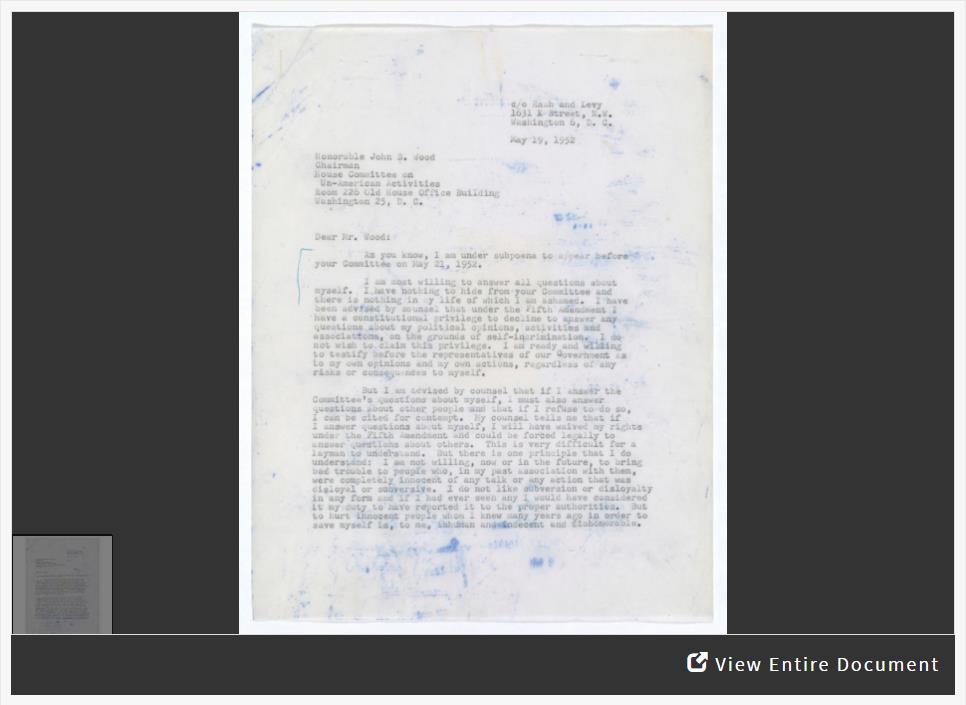In this activity, students will focus on a letter written by playwright Lillian Hellman to the House Committee on Un-American Activities in response to a subpoena for testimony. Students will analyze Ms. Hellman’s arguments both for and against invoking her Fifth Amendment privilege against self-incrimination and come to a determination as to why such a right exists within the U.S. Constitution. Students will also look at the context of the letter to discuss the history of anti-Communist blacklisting in the 1940s and 1950s.
Suggested Teaching Instructions
Use this activity when studying the amendments to the U.S. Constitution or when discussing the Second Red Scare and McCarthyism of the 1940s and 1950s. For U.S. History and U.S. Government courses for grades 9-12. Approximate time needed is 15 minutes.
Begin this activity in a full-class setting to discuss three parts of the document—the date of the letter (May 15, 1952), the addressee (the House Committee on Un-American Activities), and the line “I am under subpoena to appear.” Ask students to determine the historical context of the letter and the significance of a subpoena before a House committee. Lead students to place the letter in the time period of McCarthyism and the Second Red Scare. Briefly share details with the students about the congressional investigation process.
In small groups of 2-3, ask students to focus on the remaining passages within the letter. Direct students collaboratively to identify Miss Hellman’s rationale or arguments for choosing not to invoke her Fifth Amendment privilege against self-incrimination as well as her arguments for invoking her Fifth Amendment right. Instruct them to record their answers.
Come together as full-class once more to discuss the implications of the Fifth Amendment. Ask students to consider and respond to the following questions found in the “When You're Done” section:
- Some have suggested that invoking the Fifth Amendment is equivalent to admitting guilt. How can an invoking of the Fifth Amendment be seen both as an admission of guilt and as a protection for the innocent?
- Why did the First Congress codify this right within the Bill of Rights? Why was it so important to them and why does it continue to have significance today?
- If subpoenaed as Miss Hellman was, what would you do? Would you testify against yourself and your family, friends, coworkers, or classmates?
As student discuss their answers (which are likely to vary), ask probing questions to force them to rationalize their answers—similar to how Miss Hellman has rationalized her own thought process in the letter.
As an extension to this lesson, students may be asked to find a current event on the controversy of “forced or coerced confessions” to further analyze the Fifth Amendment’s role in American democracy.

To the extent possible under law, Center for Legislative Archives, National Archives has waived all copyright and related or neighboring rights to "Analyzing the 5th Amendment Right Against Self-Incrimination".





